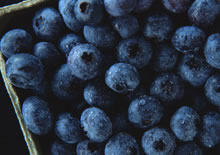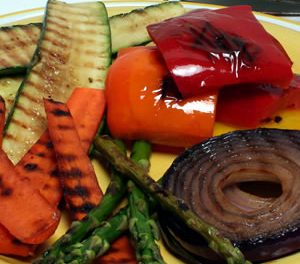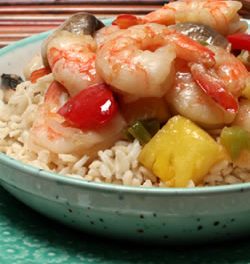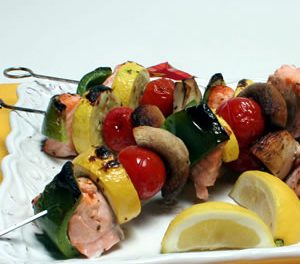Blueberries are hot in terms of today's culinary trends. Since they are the berry I love most, I am delighted to see the praise they are garnering from health and nutritional studies.
Ounce for ounce, blueberries contain the most potent combination of antioxidants, putting them on top of spinach, strawberries, and 47 other foods rated in a study at Tufts University for their antioxidant content. In animal tests, these white-blushed berries not only stopped effects of brain aging, but appeared to reverse it. Plus they are a good source of vitamin C and fiber, too.
Blueberries offer so much that some experts recommend eating them every day. This can be a challenge, since they are far less abundant than strawberries and raspberries, especially outside of the few months when they are in season. Even then, blueberries are more costly than other fresh berries, so I have been looking at other alternatives.
These include dried blueberries and frozen fruit. The dried berries, though are expensive, particularly when you calculate their price by the pound. This leaves frozen blueberries as the prime choice for most of the year, and for many consumers.
Fortunately, frozen blueberries are a good choice for eating, as well as for nutrition and cost. They make great smoothies. Unlike frozen strawberries and raspberries, they are as good as, and sometimes better than fresh, in muffins and pancakes, cobblers, and for making jam. For most of us, frozen is also the only way to enjoy wild blueberries. Grown in Maine, Michigan and Canada, this intensely flavored fruit is an even better source than cultivated berries for the phytochemicals that make blueberries one of the best foods you can eat.
For maximum nutritional benefit, the less blueberries are cooked, the better. This makes smoothies, muffins and pancakes among the best choices. I also like using frozen berries to make blueberry syrup, where the fruit is briefly cooked, and little sugar is needed.
Blueberry Syrup
Makes 1 1/2 cups, or 12 servings, each measuring 2 tablespoons.
Ingredients:
- 10 oz. bag unsweetened frozen blueberries
- 2 Tbsp. fresh lemon juice
- 1-inch x 1/2-inch strip lemon zest
- 1/2 cup sugar
Directions:
- Defrost berries and place in a deep saucepan. Add lemon juice. Cook over medium heat until berries are swimming in liquid, about 5 minutes. Add lemon zest. Increase heat to medium-high, and boil until fruit is soft, about 5 minutes.
- Add sugar. Bring syrup to a boil over medium-high heat. Pour syrup into a heat-proof container, and cool to room temperature. It will thicken slightly as it cools. Remove lemon zest, cover, and refrigerate. This syrup keeps up to a week in the refrigerator.
Nutritional Information Per 2-Tbsp. Serving:
45 calories,
0 g. total fat (0 g. saturated fat),
11 g. carbohydrate,
0 g. protein,
less than 1 g. dietary fiber,
0 mg. sodium
Diabetic Exchanges: 1 Fruit
AICR











